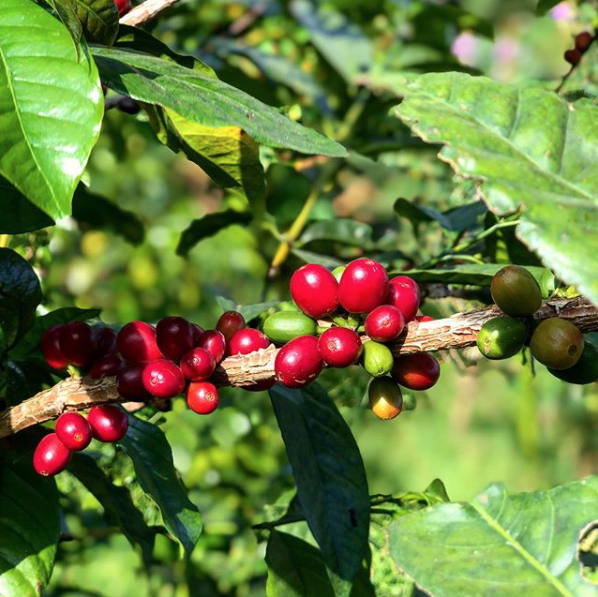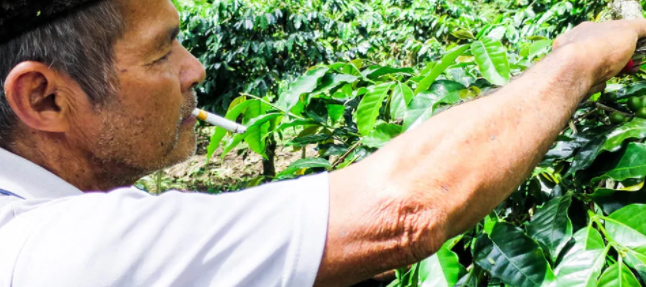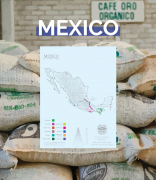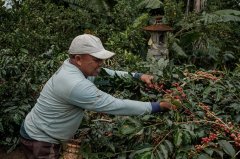Mexican Coffee Flavor characteristics Historical Story Fine Coffee Development Mexican Coffee Industry is facing crisis
Mexico is often excluded when people list famous coffee producing areas. There's no Mexican coffee on the bean list on the front street. But there is no denying that Mexican coffee has many advantages: unique fruity characteristics, positive social and environmental impacts and rich traditions of coffee production. Coffee first arrived in Mexico in the late 1700s and was introduced by Spanish settlers. Today the county produces a considerable amount of coffee although its status as a global coffee producer has significantly reduced leaf rust due to the entry of non-traditional Arabica coffee producers particularly due to crop losses caused by coffee. Although the country is one of the major exporters of certified coffee (organic and fair trade), the quality professional market has not yet made significant progress here. This is not because Mexico lacks the potential to produce high-quality plots: the country has a large number of planting areas with pleasant elevations and climate, as well as hundreds of thousands of experienced and mature small-scale farmers.

One problem for Mexico's coffee industry is to convince the government of its importance. In 1989, the Mexican Coffee Association (INMECAFE)-which has tightly controlled most of the country's production since the 1970s-was suddenly disbanded by President Carlos Salinas de Gotari in response to the demands of the World Bank and other international financial institutions. Neoliberal reforms. The simultaneous lifting of the international coffee agreement and its quota suspension (hitherto permanent) have exposed producers to unprecedented price fluctuations and no safety net. Owing to the lack of access to credit, market access and technical support, Mexican coffee producers (the vast majority of them on a small scale (10 hectares or less) find it difficult to pay the minimum production costs to ensure the livelihood of their families. Even today, because of Mexico's lucrative sources of income (such as industry and manufacturing, oil, tourism and remittances), the government's efforts to promote the coffee industry are largely limited to accumulating political influence in rural areas
Another problem is market access and growers' awareness of the potential for price premiums from quality production (again, it can be said to be related to the lack of some strong national advisory board). The industry tends to be dominated by large private exporters and tends to be multinational exporters with little information flowing to producers. The vast distance between growing areas makes communication, access and collective action a challenge.

However, nothing is doom and pessimism. After the dissolution of INMECAFE, Mexican producers demonstrated their ability to reorganize into cooperatives of all forms and sizes, which enabled them to take advantage of emerging markets for fair trade and organic coffee in the late 1990s and early 2000s; since then, certification has gained a foothold in many of the most remote and vulnerable areas. This translates into quality improvement only in rare cases, but in recent years coffee-growing cooperatives / regions in Mexico have put pressure on the Government to make more strategic investment in coffee. Their argument has benefited from a sharp rise in global prices-making coffee a more attractive industry than it was during the coffee crisis in the 1990s. In addition, the Cup of Excellence held its first competition in Mexico in 2012, raising growers' understanding of the professional market and buyers' awareness of Mexico's potential. The recently established Mexican production Coffee chain Association (AMECAFE), as the cross-sector and private-public body responsible for Sistema Producto Caf é, has shown some hope of revitalizing Mexican production by switching to boutique coffee. However, it is still too early, and the impact remains to be seen. The recently established Mexican production Coffee chain Association (AMECAFE), as the cross-sector and private-public body responsible for Sistema Producto Caf é, has shown some hope of revitalizing Mexican production by switching to boutique coffee. However, it is still too early, and the impact remains to be seen. The Mexican production Coffee chain Association (AMECAFE), recently established as the cross-sector and private-public body responsible for the Sistema Producto Caf é, shows some hope of revitalizing Mexican production by switching to boutique coffee. However, it is still too early, and the impact remains to be seen.
Important Notice :
前街咖啡 FrontStreet Coffee has moved to new addredd:
FrontStreet Coffee Address: 315,Donghua East Road,GuangZhou
Tel:020 38364473
- Prev

The world's ninth largest coffee exporter-Mexico coffee producing coffee bean characteristics History story
The vast majority (90%) of Mexico's coffee beans are grown in four states in the southern half of the country: Chiapas (44%), Oaxaca (11%), Veracruz (29%) and Puebla (11%)(Source: SIAP 2013). More than 500,000 farmers grow coffee, of which about 70 per cent are smallholders with land of less than 10 hectares. Large estates are rare. Only 0.06 percent.
- Next

Historical story of Arabica bourbon coffee beans in Mexico description of flavor and taste of Mexican coffee beans
Coffee was first grown in Mexico in the late 1700s. Mexican coffee beans are usually not complex and are used as a mixed base.
Related
- Detailed explanation of Jadeite planting Land in Panamanian Jadeite Manor introduction to the grading system of Jadeite competitive bidding, Red bid, Green bid and Rose Summer
- Story of Coffee planting in Brenka region of Costa Rica Stonehenge Manor anaerobic heavy honey treatment of flavor mouth
- What's on the barrel of Blue Mountain Coffee beans?
- Can American coffee also pull flowers? How to use hot American style to pull out a good-looking pattern?
- Can you make a cold extract with coffee beans? What is the right proportion for cold-extracted coffee formula?
- Indonesian PWN Gold Mandrine Coffee Origin Features Flavor How to Chong? Mandolin coffee is American.
- A brief introduction to the flavor characteristics of Brazilian yellow bourbon coffee beans
- What is the effect of different water quality on the flavor of cold-extracted coffee? What kind of water is best for brewing coffee?
- Why do you think of Rose Summer whenever you mention Panamanian coffee?
- Introduction to the characteristics of authentic blue mountain coffee bean producing areas? What is the CIB Coffee Authority in Jamaica?

